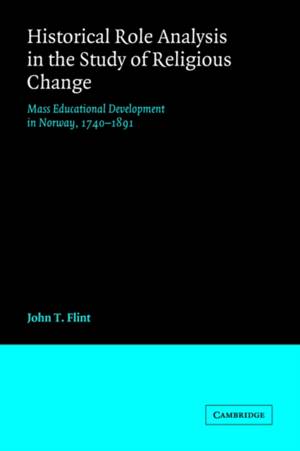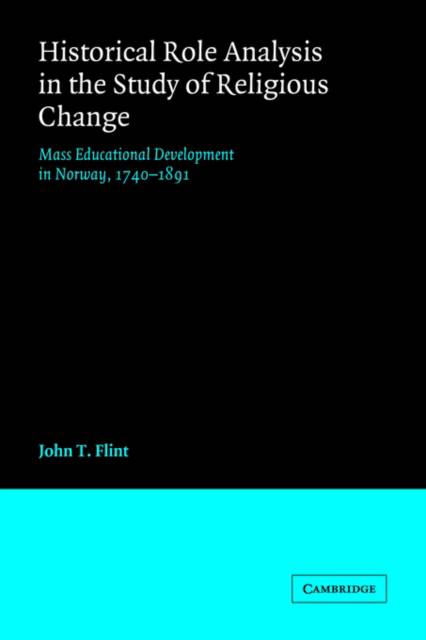
- Afhalen na 1 uur in een winkel met voorraad
- Gratis thuislevering in België vanaf € 30
- Ruim aanbod met 7 miljoen producten
- Afhalen na 1 uur in een winkel met voorraad
- Gratis thuislevering in België vanaf € 30
- Ruim aanbod met 7 miljoen producten
Zoeken
Historical Role Analysis in the Study of Religious Change
Mass Educational Development in Norway, 1740 1891
John T Flint
€ 64,95
+ 129 punten
Uitvoering
Omschrijving
This study in historical sociology explores the relationship between educational development and religious change in Norwegian society during a period of significant social and economic transition. John Flint traces the processes whereby the laity radically reduced clerical control over religious institutions. He examines census materials, reports to the Ministries of the Church and Education, and information from organizational histories, using historical role analysis to describe the changing relationships among state church pastors, parish school teachers, pupils, parents, and lay preachers. In his examination of the movement toward mass literacy, John Flint draws on and contributes to the sociology of comparative education development. His findings from this Norwegian study have wider theoretical and methodological implications, and will be of interest to historians and sociologists studying religion and education.
Specificaties
Betrokkenen
- Auteur(s):
- Uitgeverij:
Inhoud
- Aantal bladzijden:
- 168
- Taal:
- Engels
- Reeks:
Eigenschappen
- Productcode (EAN):
- 9780521031813
- Verschijningsdatum:
- 23/11/2006
- Uitvoering:
- Paperback
- Formaat:
- Trade paperback (VS)
- Afmetingen:
- 152 mm x 229 mm
- Gewicht:
- 254 g

Alleen bij Standaard Boekhandel
+ 129 punten op je klantenkaart van Standaard Boekhandel
Beoordelingen
We publiceren alleen reviews die voldoen aan de voorwaarden voor reviews. Bekijk onze voorwaarden voor reviews.







